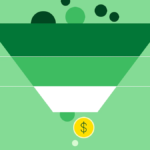Content marketing analytics tools are a must for every content marketer. They assist you in gauging the success of your content marketing campaigns so you can determine what is profitable for your company. We’ve compiled a list of the most widely used best content marketing analytics tools in case you’re unclear which ones you need. Select the most effective ones for your company so you can track the success of your online marketing initiatives.
You can monitor the effectiveness of your content by using content marketing analytics. By analyzing what’s effective and ineffective, you may make more informed choices when creating fresh content strategies or spending money on social media marketing. Your approach to content marketing will be measured, examined, and reported on by your content marketing analytics tools.
You’ll be able to see your complete content development process and its outcomes comprehensively. An excellent tool for assessing the performance of your content marketing initiative is content analytics. You need to know what is and is not working with your marketing techniques to get the most out of them.
Top Content Marketing Analytics Tools

1. HubSpot Marketing Analytics and Dashboard Software
It is simple to get all data and insights in a matter of seconds from a single spot using this one of the top content marketing analytics tools. Use behavioral events to monitor personalized interactions specific to your company, plan and/or trigger touchpoints, and determine when a client is prepared to go on to the next stage of the buyer’s journey.
To link each customer contact to a related record and revenue earned, use attribution reporting. With the help of pre-built, editable dashboards, templates, and custom objects, your team can simply display data and apply it to segments, campaigns, workflows, and other applications.
Features:
- A/B Testing.
- API.
- Activity Dashboard.
- Alerts/Notifications.
- Audit Management.
- Automated Publishing.
- Autoresponders.
- CAN-SPAM Compliance.
- CRM.
- Calendar Management.
- Campaign Analytics.
- Campaign Management.
- Campaign Planning.
- Campaign Scheduling.
- Campaign Segmentation.
- Campaign Tracking.
- Click Tracking.
- Collaboration Tools.
- Competitive Analysis.
- Contact Database and many more.
Price:
- Free plan available.
- Starter: $15/month.
- Professional: Starting at $800/month.
- Enterprise: Starting at $3200/month.
2. Buffer
With Buffer’s content marketing analytics, you can customize reports to meet your objectives. You may add or delete custom metrics related to multiple social media accounts’ performance. These reports are readily shareable via export. You may be certain that you’re getting timely data since reports are updated every day. With just one dashboard, you can see channel performance in great detail thanks to Buffer’s analytics.
Additionally, the platform provides interaction analytics for every account separately. This gives you a detailed insight into the interactions that consumers are having with social media material. Track the effectiveness of your posts, stories, and hashtags, and get access to your audience’s demographics across all platforms.
Features:
- @mentions.
- API.
- Alerts/Notifications.
- Automated Publishing.
- Automated Scheduling.
- Calendar Management.
- Campaign Management.
- Collaboration Tools.
- Content Library.
- Content Management.
- Data Import/Export.
- Data Visualization.
- Multi-Account Management.
- Multi-Channel Campaigns.
- Performance Metrics.
- Post Scheduling.
- Reporting & Statistics.
- Reporting/Analytics.
- Social Media Integration.
- Social Media Monitoring.
- Social Promotion.
- Tagging.
- Third-Party Integrations.
Price:
- Free trial & free plan available.
- Essentials: $5/month/channel.
- Team: $10/month/channel.
- Agency: $100/month/channel.
3. Adobe Analytics
You’ll think this one of the best content marketing analytics tools is a more sophisticated version if you’re accustomed to Google Analytics. It offers comprehensive online reporting, but that’s only the beginning.
By combining artificial intelligence (AI) and machine learning into a drag-and-drop interface that is easy to use, Adobe Analytics elevates the game. Thus, you don’t need to be an expert in data science to execute sophisticated queries or extract insightful information.
Regardless of your degree of expertise, this tool provides versatility for both statisticians and regular marketers. Additionally, you can forecast future behavior like conversion or churn likelihood thanks to its sophisticated statistical modeling, which is great for competitive players.
Features:
- A/B Testing.
- AI/Machine Learning.
- API.
- Activity Dashboard.
- Ad hoc Analysis.
- Alerts/Notifications.
- Attribution Modeling.
- Audience Targeting.
- Behavior Tracking.
- CRM.
- Campaign Analytics.
- Campaign Segmentation.
- Campaign Tracking.
- Conversion Tracking.
- Cross Channel Attribution.
- Customer Journey Mapping.
- Customizable Dashboard.
- Dashboard.
- Data Capture and Transfer.
- Data Discovery and many more.
Price:
- Free trial available.
- Contact Adobe for details.
4. Google Analytics
You may utilize Google Analytics’ user-friendly interface to comprehend how well your content performs on various platforms. Analyzing your content marketing efforts on a page-by-page basis or across all of your web pages is another option.
Google Analytics provides measures for traffic, navigation, conversion, and organic search so you may assess the effectiveness of your content marketing campaign. With the tool, you may monitor user-level interactions to get an understanding of how your audience is interacting with your material. To access all of your data and insights in one location, this analytics tool interacts with all of Google’s other business applications.
Features:
- API.
- Access Controls/Permissions.
- Activity Dashboard.
- Ad hoc Reporting.
- Alerts/Notifications.
- Augmented Analytics.
- Behavior Tracking.
- Campaign Tracking.
- Collaboration Tools.
- Conversion Tracking.
- Customer Database.
- Customer Journey Mapping.
- Customer Segmentation.
- Customizable Dashboard.
- Customizable Reports.
- Dashboard.
- Dashboard Creation.
- Data Aggregation.
- Data Capture and Transfer.
- Data Connectors and many more.
Price: Free.
5. SimilarWeb
This one of the top content marketing analytics tools informs you where your website sits about industry standards for traffic and interaction. Finding out how your performance compares to the competition is much easier with the use of this information.
Analyze your daily active users, sessions per user, and rank using SimilarWeb. Learn more about your audience to enhance your acquisition approach, such as recurring habits or interests.
Features:
- Activity Dashboard.
- Activity Tracking.
- Ad hoc Reporting.
- Alerts/Escalation.
- Alerts/Notifications.
- Backlink Monitoring.
- Behavior Tracking.
- Benchmarking.
- Campaign Analytics.
- Campaign Management.
- Campaign Planning.
- Campaign Tracking.
- Channel Management.
- Charting.
- Communication Management.
- Competitive Analysis.
- Conditional Logic.
- Contact Database.
- Conversion Rate Optimization.
- Conversion Tracking and many more.
Price:
- Free demo available.
- Contact SimilarWeb for pricing.
6. Moz
Moz calculates the effect of your content that is optimized for search engines. Learn how your work compares to that of others in your field and which keywords will perform best for your plan. Moz’s software continuously monitors the keyword rank and visibility of your website to determine what is and isn’t working effectively with users.
Moreover, monitor your rivals’ positions on search engine results pages (SERPs) to identify areas for development and campaign components that may be used to attack them. Use Moz’s comprehensive reports to discover how viewers are engaging with your content and identify areas for improvement.
Features:
- Audit Management.
- Backlink Monitoring.
- Brand Guidelines.
- Broken Link Discovery.
- Campaign Management.
- Campaign Tracking.
- Categorization/Grouping.
- Competitive Analysis.
- Content Management.
- Conversion Tracking.
- Customer Journey Mapping.
- Customizable Reports.
- Dashboard.
- Data Import/Export.
- Data Visualization.
- Digital Asset Management.
- Geolocation.
- Google Analytics Integration.
- Issue Management.
- Keyword Analysis and many more.
Price:
- Free plan available.
- Starter plan: Starts at $49/month.
- Standard plan: $99/month.
- Medium plan: $179/month.
- Large plan: $299/month.
7. Fathom
This one of the best content marketing analytics tools is a goldmine for privacy-conscious people. It is designed to be GDPR, CCPA, and other privacy regulations compliant right out of the box—no bother, no cookies.
With its clean dashboard that displays all of your important information, including pageviews, unique visitors, and conversions, on one screen, Fathom is a very user-friendly tool. You won’t need to sift through a ton of reports to get the information you want. Furthermore, Fathom allows you to view your data without limitations for the rest of your life, which makes it ideal for anybody looking for basic web analytics without sacrificing control.
Features:
- Alerts/Notifications.
- Campaign Analytics.
- Charting.
- Conversion Rate Optimization.
- Conversion Tracking.
- Customer Journey Mapping.
- Dashboard Creation.
- Data Visualization.
- Keyword Tracking.
- Monitoring.
- Multiple Site Management.
- Pageview Tracking.
- Real-Time Analytics.
- Real-Time Data.
- Real-Time Monitoring.
- Real-Time Notifications.
- Referral Tracking.
- Reporting/Analytics.
- SEO Management.
- Sales Trend Analysis.
- Search/Filter.
- Third-party integrations and many more.
Price:
- Free trial available.
- Contact Fathom for pricing details.
8. Semrush
Semrush is used to analyze keyword performance in your content and to keep an eye on cross-platform brand mentions for search engine optimization (SEO).
The program also monitors Google ranks and the most popular pages on your website. This is useful because you can modify the material you provide on your website based on what attracts users to it.
Features:
- API.
- Activity Dashboard.
- Activity Tracking.
- Ad hoc Reporting.
- Advertising Management.
- Alerts/Notifications.
- Application Management.
- Audit Management.
- Automated Publishing.
- Automated Scheduling.
- Backlink Management.
- Backlink Monitoring.
- Benchmarking.
- Brand Tracking.
- Broken Link Discovery.
- Calendar Management.
- Campaign Analytics.
- Campaign Management.
- Campaign Planning.
- Campaign Scheduling and many more.
Price:
- Free trial and plan are available.
- Pro: $139.95/month.
- Guru: $249.95/month.
- Business: $499.95/month.
9. Quintly
Quintly gives you the information you need to evaluate your content marketing initiatives. By giving you access to customizable indicators, it facilitates more informed judgments about social media strategy and helps you gauge the effectiveness of your marketing campaign.
Quintly thoroughly examines each of your accounts to find metrics that are important to your teams and objectives. Reports can be shared and sorted by team to ensure that everyone has access to the data they want. Moreover, reports may be automated and impact-measured using Quintly’s machine-learning technology. Users may overcome data silos, use the API, and combine it with well-known programs like Google Search.
Features:
- @mentions.
- API.
- Activity Dashboard.
- Benchmarking.
- Campaign Analytics.
- Campaign Management.
- Commenting/Notes.
- Competitor Monitoring.
- Conversion Tracking.
- Customer Segmentation.
- Customizable Branding.
- Customizable Reports.
- Customizable Templates.
- Dashboard.
- Dashboard Creation.
- Data Import/Export.
- Data Visualization.
- Engagement Tracking.
- Influencer Tracking.
- Keyword Filtering and many more.
Price:
- Free trial available.
- Price starts from €300 per month.
What Kinds Of Analytics Tools Use In Marketing?
The majority of content marketing analytics tools have the same objective, despite their wide variety. This will assist you in cutting expenses and raising the return on your marketing investments. Generally speaking, but not only, marketing analytics solutions fit into the following categories:
Web analytics tools: They do exactly what their name suggests: they monitor user behavior on your website. You may monitor data using tools like Google Analytics to assess the effectiveness of your marketing initiatives and evaluate traffic and lead conversion numbers.
Tools for attribution analytics: Let you take it a step further. They monitor your online activity and, by determining which channels—rather than simply clicks and conversions—are producing income, they also help to dissolve the divide between marketing and sales.
Tools for call analytics: Essentially, call tracking analytics allows you to monitor which campaigns, keywords, or advertisements are causing the phone to ring. Excellent tool for internet lead generation and offline transaction conversion.
Social media analytics: Everyone wants a piece of the growing social media market. You can monitor which ads provide the greatest results and have the highest conversion rates using social media analytics.
Tools for modeling the marketing mix: Since Google and Apple improved privacy safeguards, the popularity of these tools has increased. A statistical method known as “marketing mix modeling” aids companies in assessing and optimizing the effect of their marketing initiatives on revenue and sales.
Consider the marketing mix modeling of Ruler. Ruler aids in marketing measurement, decision-making, and budget allocation by combining data from several sources, including sales, price, and promotions.
FAQ
Q: What is the purpose of marketing analytics tools?
A: Marketing analytics systems perform a multitude of tasks, such as monitoring website traffic and social media activity, assessing consumer behavior, and predicting sales patterns.
Q: Can I use content marketing analytics tools for free?
A: A few of the said options offer a free plan; others offer a free trial/demo.
Q: In what way would you use analytics for marketing plans?
A: You might monitor the organic search traffic to your website over time using marketing analytics. This would enable you to determine if your efforts are bringing in more or less traffic. You might then utilize this knowledge to adjust your marketing plan if you see a downturn.







